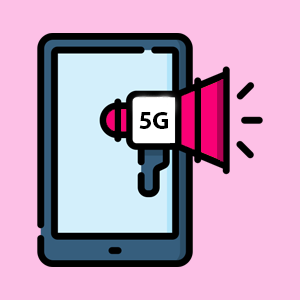 The advent of 5G technology is poised to revolutionize the digital landscape, ushering in a new era of mobile marketing strategies characterized by unprecedented speed, connectivity, and efficiency. This transformative technology is not just an upgrade to its predecessors but a fundamental shift that will redefine how marketers connect with consumers. Through faster data speeds, reduced latency, and enhanced connectivity, 5G is set to unlock a plethora of opportunities for real-time data processing, location-based marketing, and the creation of new mobile experiences.
The advent of 5G technology is poised to revolutionize the digital landscape, ushering in a new era of mobile marketing strategies characterized by unprecedented speed, connectivity, and efficiency. This transformative technology is not just an upgrade to its predecessors but a fundamental shift that will redefine how marketers connect with consumers. Through faster data speeds, reduced latency, and enhanced connectivity, 5G is set to unlock a plethora of opportunities for real-time data processing, location-based marketing, and the creation of new mobile experiences.
Unleashing Faster Data Speeds and Reduced Latency
At the heart of 5G’s impact on mobile marketing is its ability to transmit data at speeds that far surpass those of 4G networks. This increase in speed and the significant reduction in latency— the delay before a transfer of data begins following an instruction for its transfer—means that marketers can engage with consumers in real time, more seamlessly than ever before. For instance, video content, which is already a powerful tool in digital marketing, can be streamed in higher resolutions without buffering, creating more engaging and immersive experiences for the viewer.
Furthermore, the near-instantaneous communication facilitated by 5G opens the door to real-time customer service and interaction. Brands can leverage this to conduct live events, product launches, and interactive sessions with minimal delays, enhancing customer engagement and satisfaction.
Enabling Real-Time Data Processing
The enhanced capabilities of 5G also extend to real-time data processing. Marketers can collect, process, and analyze data almost instantaneously, enabling dynamic advertising strategies that can be adjusted on the fly based on real-time feedback and analytics. This means that marketing campaigns can be more agile and responsive to the ever-changing consumer landscape, leading to more personalized and effective marketing efforts.
Real-time data processing also allows for more sophisticated targeting and segmentation. Marketers can use up-to-the-minute data to understand consumer behaviors and preferences, tailoring their messages and offers to match individual needs and desires, thereby increasing the relevance and effectiveness of their campaigns.
Revolutionizing Location-Based Marketing
5G technology will significantly enhance location-based marketing strategies by providing more accurate and timely data on consumer locations. This precision opens up new avenues for personalized marketing, allowing businesses to send targeted advertisements to consumers based on their exact location in real time. For instance, retailers could send special offers or coupons to a consumer’s mobile device when they are in close proximity to a store.
Moreover, 5G’s ability to handle vast amounts of data from numerous devices simultaneously supports the growth of the Internet of Things (IoT). This interconnectivity enables a deeper integration of physical and digital marketing efforts, creating opportunities for more innovative and interactive location-based marketing strategies that were previously not feasible.
Creating New Mobile Experiences
Perhaps the most exciting aspect of 5G technology is its potential to create entirely new mobile experiences. With its superior speed and connectivity, 5G makes augmented reality (AR) and virtual reality (VR) more accessible and effective for mobile marketing. These technologies can be used to create immersive brand experiences, such as virtual try-ons for clothing or accessories, AR games that promote products, or VR tours of remote destinations.
These novel experiences not only engage consumers in unique and memorable ways but also provide marketers with valuable data on consumer interactions and preferences. This information can be used to further refine marketing strategies and create more personalized and impactful consumer engagements.
Conclusion
The rollout of 5G technology is set to transform the mobile marketing landscape, offering marketers unprecedented opportunities to engage with consumers. Through faster data speeds, reduced latency, enhanced connectivity, and the ability to process vast amounts of data in real time, 5G will enable more personalized, efficient, and interactive marketing strategies. As businesses and marketers adapt to this new technological paradigm, the potential for innovation in mobile marketing is boundless. The key to success will lie in leveraging the capabilities of 5G to create meaningful and engaging experiences that resonate with consumers, driving both engagement and business growth in the digital age.
